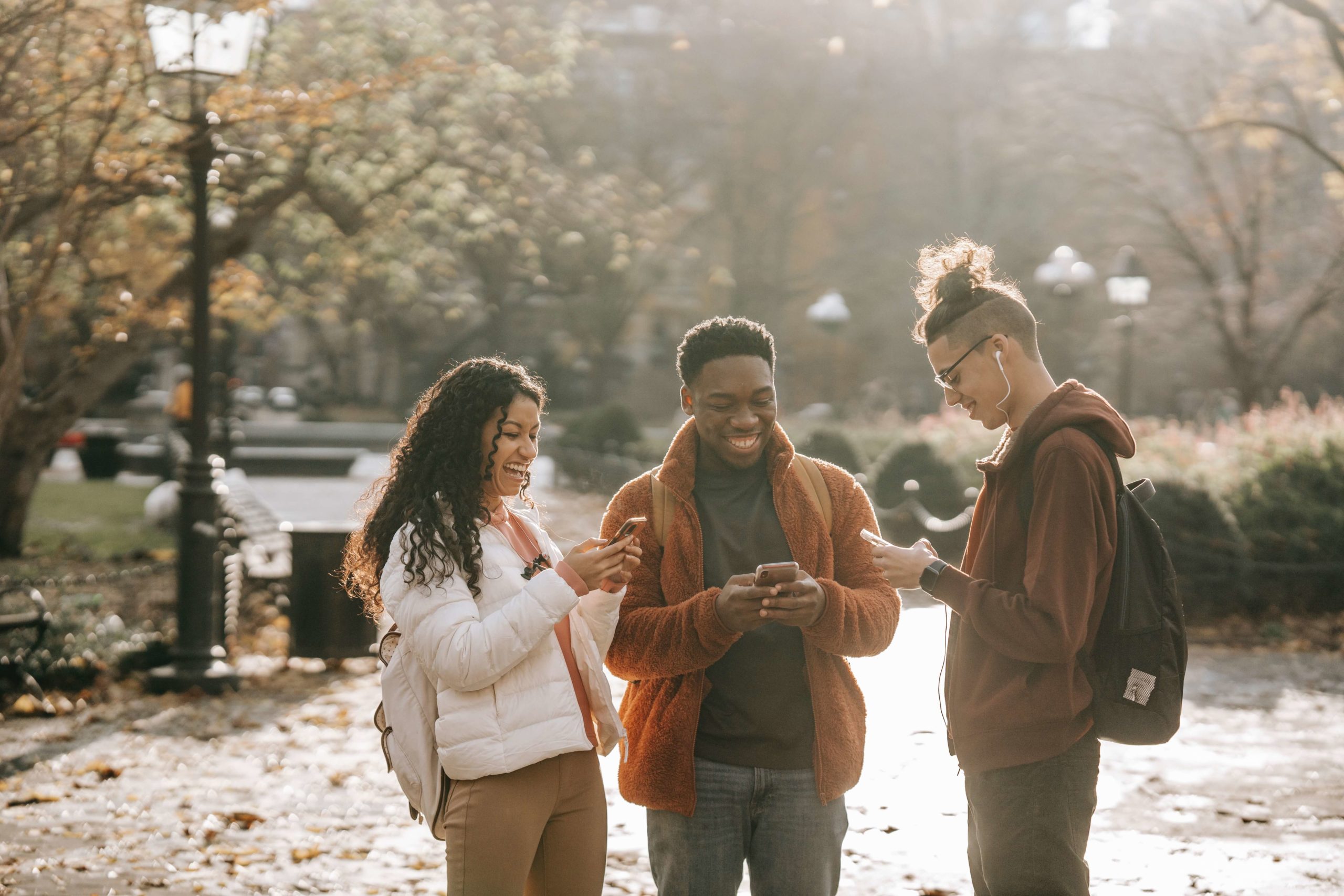To say the past two years have been “eventful” would be the understatement of the century… When we weren’t worrying about the pandemic or wondering where all of the toilet paper went, we were desperately trying to find new hobbies to occupy our time.
With no friends to visit or places to go, attention turned to social media more than ever before. Together, we rediscovered banana bread, puzzles, paint-by-numbers and collectively downloaded TikTok (even though you swore you never would). Guilty as charged 🙋

Besides these more superficial pastimes to distract ourselves, having more time for reflection sparked more thoughtful and much-needed conversations about social injustice. With everyone’s attention cast online, news of inequities and mistreatment travelled fast, and the reality of systemic oppression was unavoidable and inescapable. From police brutality, to Black Lives Matter, to Indigenous Rights or MeToo/Time’s Up – social media posts evolved into petitions, protests and so much more during the pandemic.
While movements like BLM finally started receiving the attention they deserved, the bandwagon effect left us begging the question of who was or wasn’t being sincere in their activism. More importantly, what makes the difference between an activist and a slacktivist? How do we most effectively foster change within and around us?
Large corporations now take to Instagram to post a single photo in support of BLM and then seemingly disappear from the discourse completely, effectively paying lip service and calling it a day. Real diversity, equity and inclusion efforts require organizational transformations and change most companies are less ready to undergo when they think a tweet or two will suffice.
Questioning intention and impact is also something we need to on an individual level; lest we forget the now infamous #blackouttuesday squares. For those unaware of this social media movement, the hashtag was originally intended to support Black artists and creators and contribute to the conversation of diversity within the entertainment industry. Unfortunately, the hashtag was misconstrued and users took to posting black squares and pledging to stay off social media for the day.
Despite wanting to help or participate in the dialogue, a lack of education, understanding, thoughtfulness or research in these areas can make it easy to get swept up in what has become known as “performative activism.” In other words, activism undertaken by individuals or companies for the purpose of gaining something in return – be it for social popularity, recognition, money or just to draw attention to yourself.

It’s always heartwarming that younger generations are often at the forefront of movements for change. But sometimes as a group, we need to remember that social media isn’t the only way to connect or learn about social issues. While posting resources on Stories and circulating news updates are definitely helpful to spread the word about a cause, it’s crucial to find more meaningful ways to truly spark change within our everyday lives.
Luckily for us, Canadian universities offer a wide selection of courses that can broaden our knowledge and deepen our understanding of all sorts of important social causes. Here are just some of the offerings worth checking out as you round out your course load…
10 electives at Canadian universities that school us on injustice
Concordia University – Montreal, QC
1. ENGL 369: African-American Literature 1900 to Present
In this class you’ll discover novels written by black authors throughout the 20th century. The course touches on segregation, Jim Crow laws, the Civil Rights movement as well as modern day racial injustice and the impact of these issues on the black community and beyond.
2. ENGL 380: First Nations/North American Native Literature
Through the exploration of literature, this course delves into the challenges faced by First Nations peoples in North America including residential schools, misrepresentation of Indigenous people in media and much more. You’ll not only learn about these issues but you’ll experience their impact through film and contemporary literature.
3. HIST 242: History of the Middle East
This curriculum explores Middle Eastern political history, including the formation and rise of Islam as well as its present-day state. It also delves into the Arab-Israeli conflict and colonialist history. Social, cultural and religious timelines are discussed throughout the course, providing you with a decent background in the region.
McGill University – Montreal QC
4. ENGL 345: Literature and Society: Asian-American and Asian-Canadian Literature
This course will discuss the cultural and social barriers that surround the Asian community through a North American lens. This goal will be achieved by delving into literature written by Asian-American and Asian-Canadian authors and will discuss topics such as discrimination, politics and socio-economic related issues.
5. ENGL 444: Women’s Writing and Feminist Theory: Gender and African Literature
Discover feminist theory through various literary lenses. This course dives into gender and African literature and relates them to experiences based on politics, race, and more.
6. ENGL 440: First Nations and Inuit Literature and Media
Throughout this course, you will expand your knowledge of First Nations and Inuit culture through literature, television and film. In turn, you will learn more about Indigenous cultures and obstacles faced by Indigenous communities through discussing their representation in the media.
Dalhousie University – Halifax, NS
7. GWST 1015.03: Gender and Diversity
This course will explore the complexity of gender through a variety of different discussions. Besides defining the term itself, you will also have the opportunity to view the topic of gender through varying perspectives. These include its relations to other systems of power such as economic, social and racial status.
8. ENVI 5039 : Indigenous Perspectives on Resource & Environmental Management
In this course, you’ll learn about environmental issues and their relation to politics. More specifically, it tackles how the environment endangers and affects the Indigenous community.
Memorial University of Newfoundland – St. John’s, NF
9. POSC 1020: Issues in World Politics
For those unfamiliar with politics, this course could be the perfect introduction. Explore important political challenges from around the world and their overall effects on the population.
10. HIST 3131: Black History in Canada
In this overview of black history in Canada, you’ll walk away with a deeper understanding of racism and discrimination. You’ll also learn about important African-Canadian artists, activists and entrepreneurs.
Educating ourselves about politics, history and social injustice is an important step on the road to becoming a true activist.
By choosing to learn more about these topics, we can:
- Expand our knowledge of systemic problems and change-makers fighting for justice and equality.
- Actively join conversations to help others reach a new understanding of the issues facing our communities.
- Consider more meaningful ways to affect change in our communities, and reflect on our own engagement with the movements we want to support.
Your Instagram story is only up for 24 hours: what’ll you do once that time is up?
References
Coscarelli, Joe. “#BlackoutTuesday: A Music Industry Protest Becomes a Social Media Moment.” The New York Times, June 4, 2020, https://www.nytimes.com/2020/06/02/arts/music/what-blackout-tuesday.html








